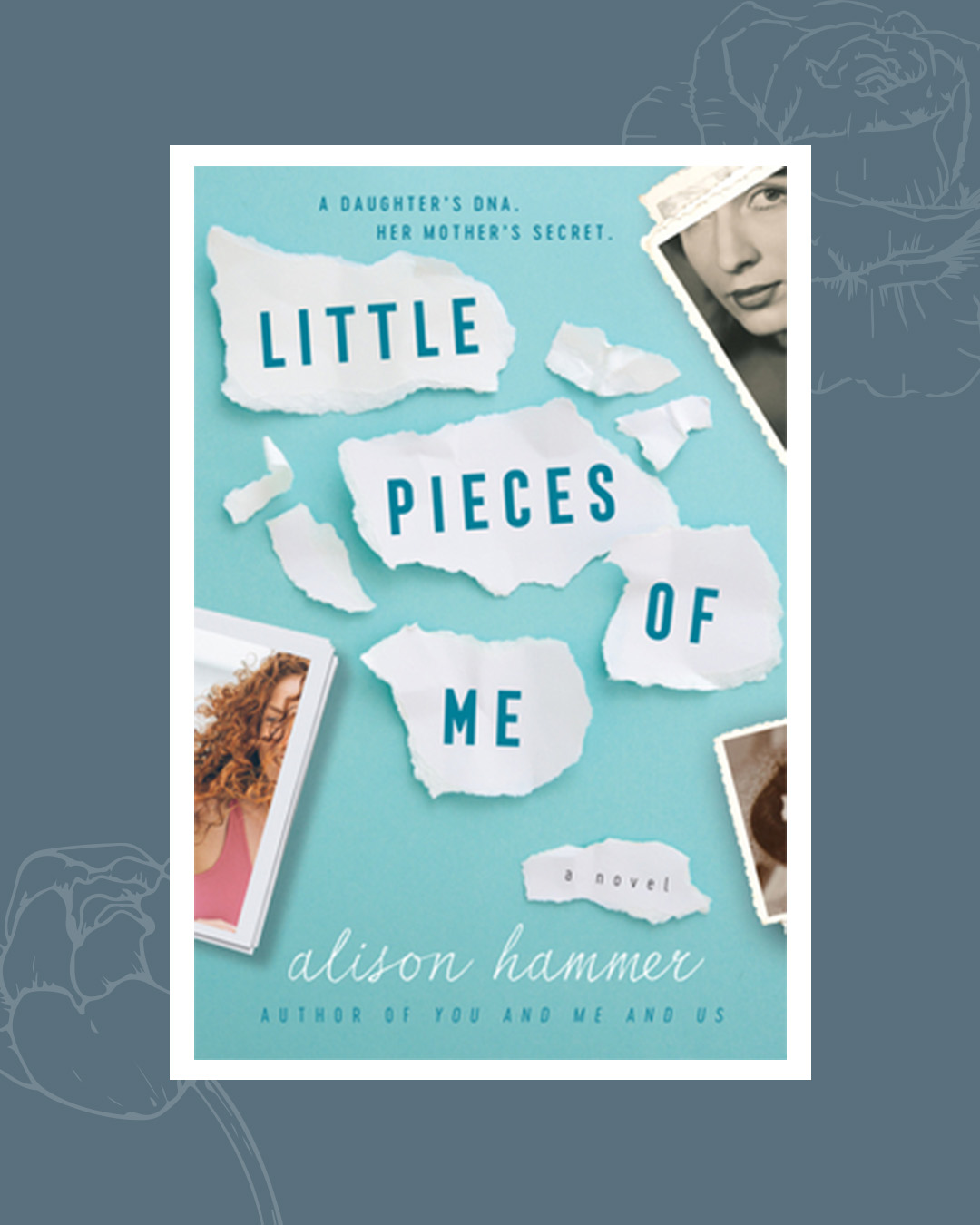Thank you to William Morrow and Net Galley for a digital ARC of this title in exchange for my honest review.
I knew I’d love this story of a surprise uncovered by a DNA test because my husband found a surprise in his family tree, though it wasn’t quite as dramatic as the one Paige Meyer discovers in Little Pieces of Me.
Paige, a woman in her forties, feels like she doesn’t belong in her family. Her relationship with her mother is prickly, and her father, who loved her unconditionally, has passed away. After Paige receives an email from a DNA testing website that reveals her late father isn’t her DNA father, she is devastated and questions her identity, her relationship with her father, and her mother’s honesty and love. With help from her two best friends, Paige begins the process of discovering who she really is. Eventually she learns the truth about herself, the man who raised her, her mother, and the relationship between her mother and her DNA dad, but it’s a rocky road she travels to understand the meaning of love and forgiveness.
The story is told in dual timelines: the present called “Now” in Paige’s point of view, and “Then,” in 1975 which follows Betsy’s and Andy’s college years and shows us who Paige’s mother and DNA dad were before they conceived Paige. This organizational setup must have been complicated to pull off, but it reveals the motivations and secrets of each character in the story at the exact moment I wanted and needed to know them. Even though the characters of Elizabeth and Betsy were the same person, this before and after timeline revealed the changes wrought by time and circumstance on Paige’s mother, father, and DNA dad. Elizabeth was Betsy before life and circumstances intervened, and Andrew was Andy.
I particularly liked stepping back in time in Betsy’s and Andy’s chapters. I think we sometimes forget our parents are and were as fully human as we are, so it was eye-opening to read those chapters and think of them as the background to Paige’s story and growth as a character and also how much our past influences our present. Their chapters brought back memories of my own college years and the secrets I keep. They also made me think of my parents in a new way. Good books make us think in a new way about ourselves and the world, and this book is one that has resonated with me on many levels.
As I read, these questions kept running through my mind. How well do we truly know our parents? How many people keep secrets this big? At what age do we view ourselves as individuals rather than as our parents’ children, or do we ever do that? I could not put this book down and highly recommend it!


